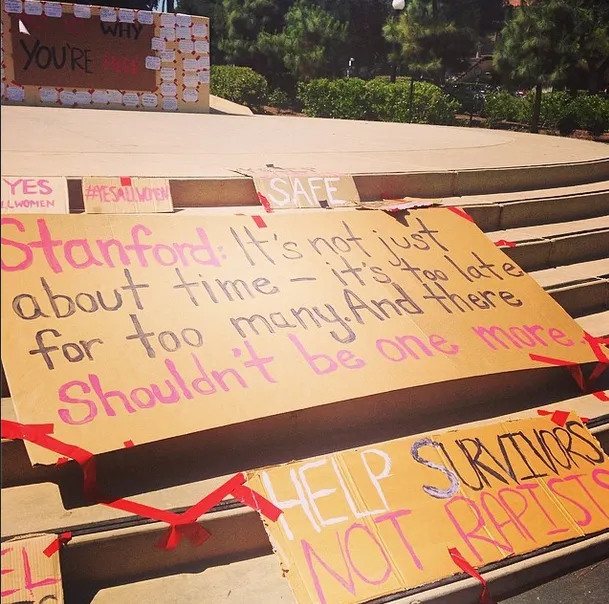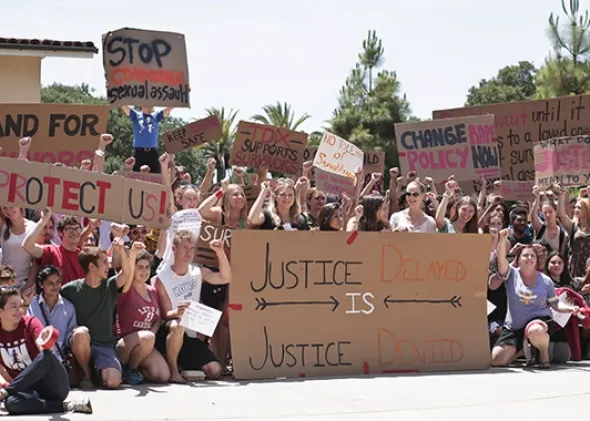Table of Contents
Posters with slogans like this one covered campus dorms, White Plaza, and other public areas last spring as sexual assault policy dominated campus discourse through the #StandWithLeah movement. The University pledged to act. This spring —almost a year later— the Provost’s Task Force on Sexual Assault has still not released its reform proposal. This delay is unacceptable.
From last spring to this past fall, several members of the ASSU drafted a detailed proposal that included several reforms, some more contentious than others. The most controversial reform called on Stanford to implement expulsion as a default punishment for those found guilty of sexual assault through its Alternate Review Process (ARP). There have been several articles published in *The Stanford Review *and *The Stanford Daily *debating this contentious element of the proposal. The ASSU proposal was ultimately cast aside, but it has served as a foundation for a new attempt at reform that began this fall: the Provost created a taskforce led by Stanford Law School Dean M. Elizabeth Magill and ASSU President Elizabeth Woodson to draft a proposal for policy changes. After repeated delays, the Task Force has not released its work.
Regardless of your position on sexual assault policy, we can all agree that Provost’s proposal is long overdue. Such delays hurt all members of the Stanford community, making students question whether the university has invalidated their concerns on this important isue by pushing the proposal back for an entire academic year.
For reform activists, these delays are deeply personal. Victims are subject to a system that does not come close to meeting their needs. Stanford’s sexual assault resources are a dizzying maze of systemic inefficiency, overlapping responsibilities, and missed opportunities for recovery. Additionally, without meaningful sanctions reform from the proposal, victims are forced to live on the same campus as their assailants. The delay can only prolong the victims’ agony and allow abusers to avoid serious punishment for their actions.
Those who are wary of reform due to alleged threats to due process are also harmed by the Task Force’s delay. Stanford would benefit from an honest debate about protections for the accused in its judicial processes and the proposal would provide a starting point for discussion. Without a proposal, proponents of more due process cannot determine whether Stanford plans to adequately protect the rights of the accused.
Stanford’s campus is deeply divided on the way forward for sexual assault reform and these divisions are here to stay. However, no matter your opinion on what direction reform should take, we as a student body can agree that it is long past time for the next stage of the conversation. Every day without a proposal is another victim subjected to an agonizing system, another person accused of sexual assault without adequate civil liberties. It is time to act. It is time to release the proposal. It is time for Stanford to lead.







